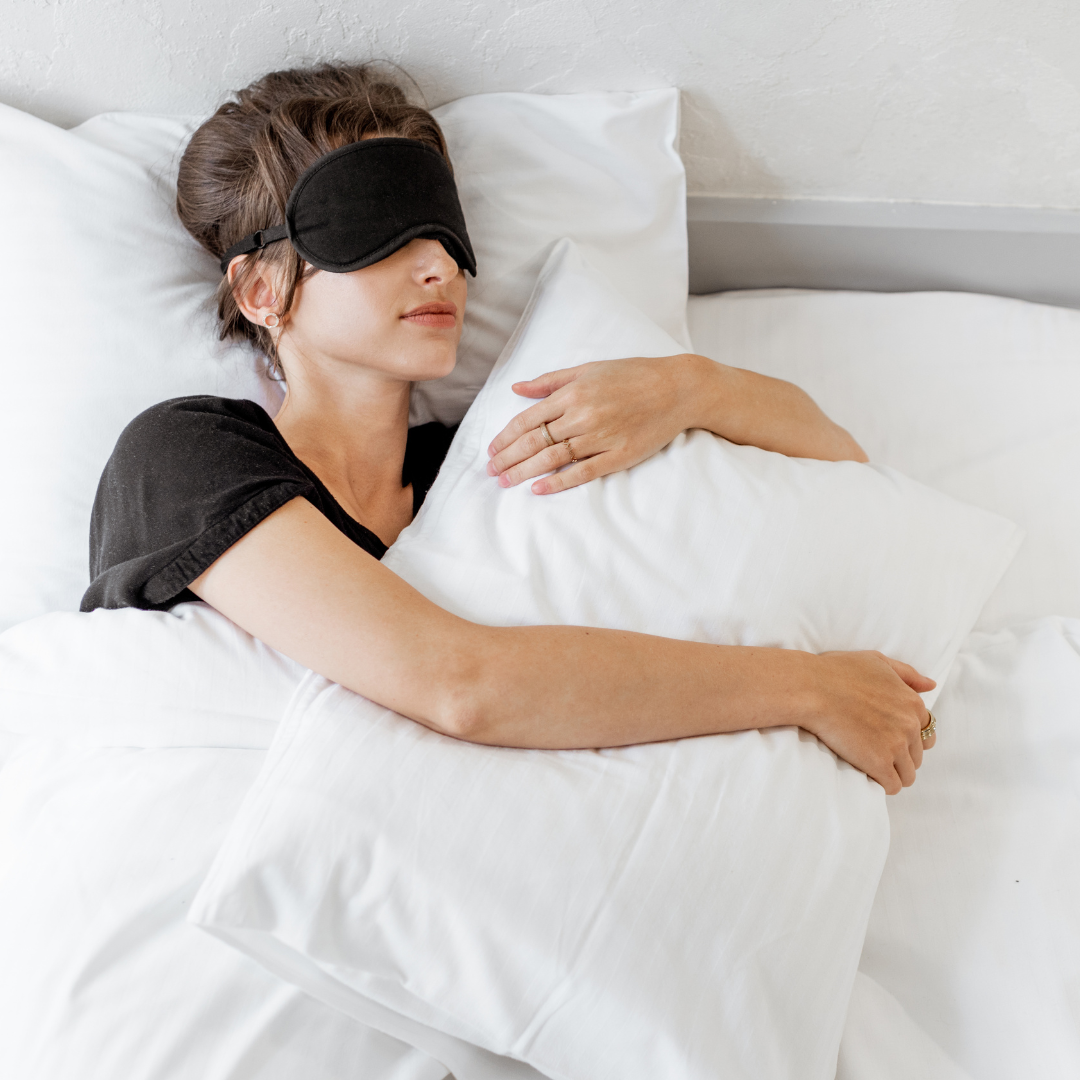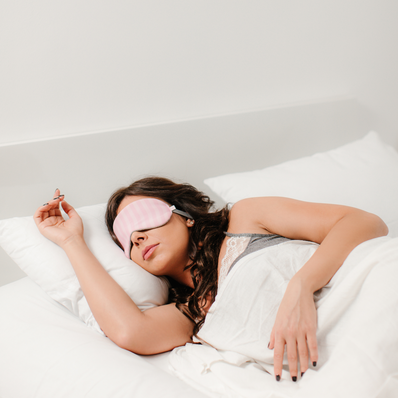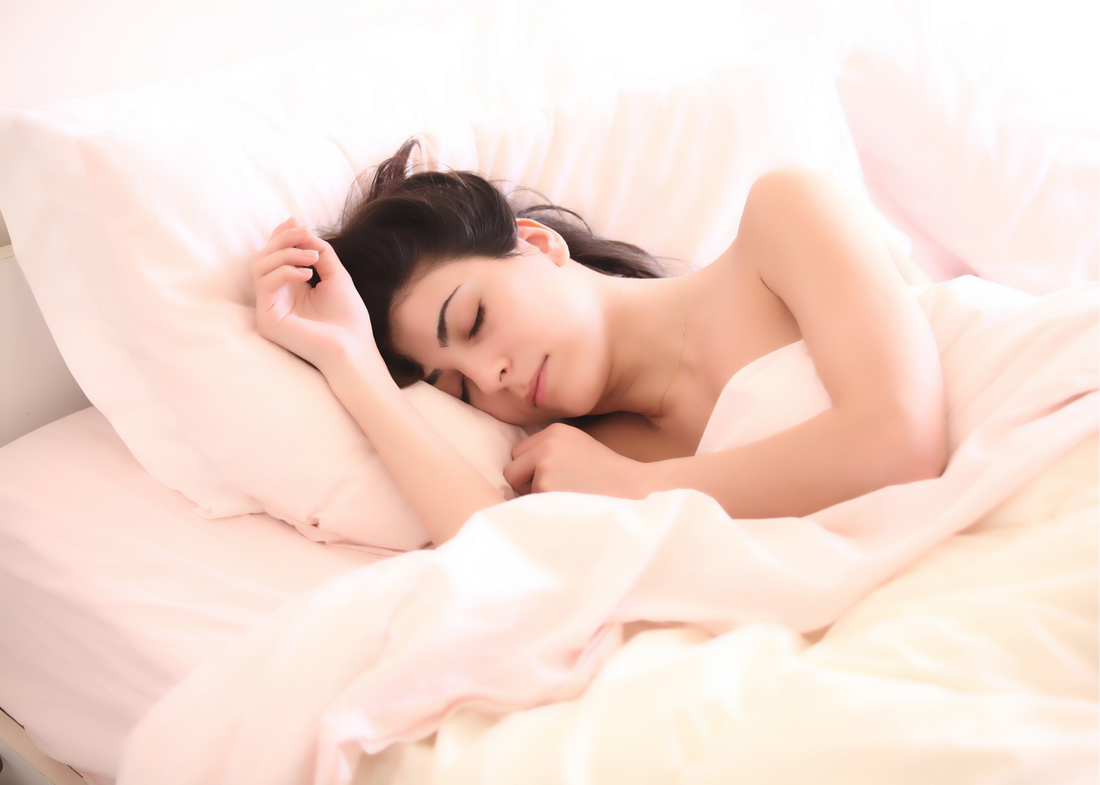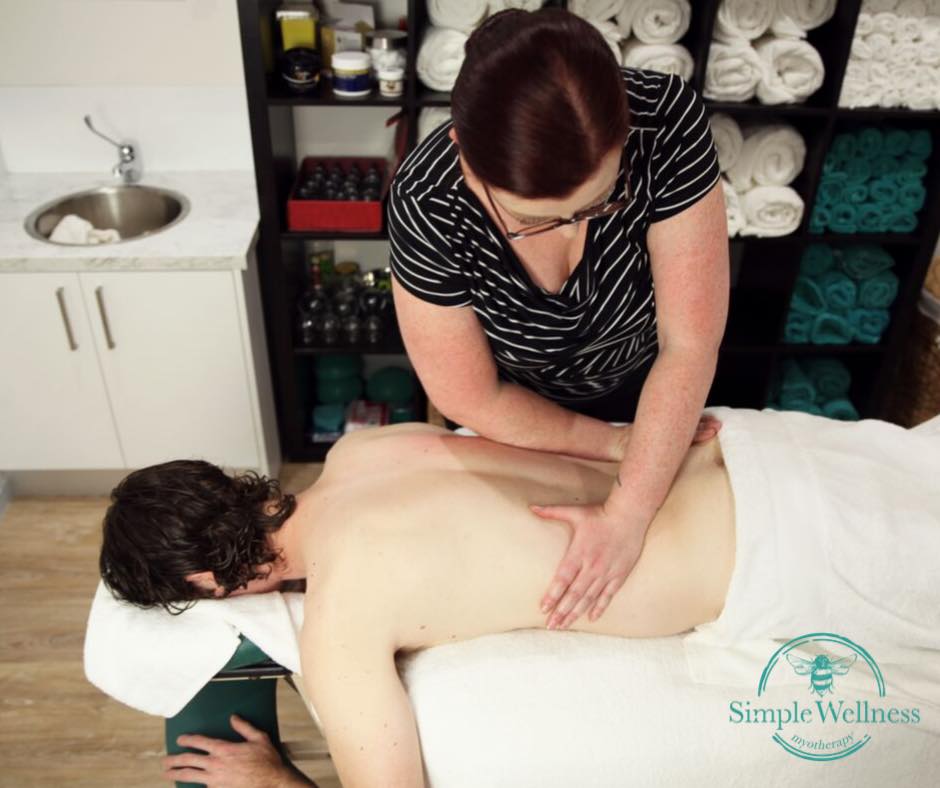|
Sleep is a vital component of our overall well-being, and its impact extends beyond rest and rejuvenation. Did you know that improving your sleep quality can also have a profound effect on pain management? In this blog post, we will explore the fascinating relationship between sleep and pain, and how myotherapy can play a significant role in improving both. Discover how prioritising sleep and incorporating myotherapy techniques can help you find relief from chronic pain and enhance your overall quality of life. Research has shown a strong link between sleep disturbances and increased pain sensitivity. Lack of quality sleep can lower the pain threshold, intensify pain perception, and lead to a heightened state of discomfort. Conversely, improved sleep can alleviate pain and enhance the body's ability to manage pain perception effectively. During sleep, the body undergoes essential restorative processes, including tissue repair, hormone regulation, and pain modulation. Disruptions in these processes can contribute to the development and persistence of chronic pain conditions.
Myotherapists address musculoskeletal pain and dysfunction every day, and one of the most common factors we see in long term persisting pain patients is that their sleep is impacted by pain. For some patients its trouble getting to sleep and finding a comfortable position, for others its being woken up throughout the night due to pain and needing to reposition. Its also important to recognise that for a lot of people in pain, even if they fall asleep and stay asleep, they can struggle to get to the deeper, restful stages of sleep, and they can then have difficulty waking up and can experience heavy fatigue. When it comes to pain management and sleep improvement, myotherapy offers several valuable benefits: Pain Relief: Myotherapists employ various techniques such as deep tissue massage, trigger point therapy, and myofascial release to alleviate pain and tension in muscles and soft tissues. These treatments help reduce inflammation, release endorphins, and promote relaxation, leading to improved pain management and quality of sleep. Muscle Relaxation: Chronic pain often results in muscle tightness and stiffness, further disrupting sleep. Myotherapy techniques help release muscle tension and promote relaxation, enabling you to achieve a more comfortable and restful sleep. Relaxed muscles also facilitate better blood flow and nutrient delivery to the tissues, aiding in the healing process. Stress Reduction: Chronic pain can cause stress and anxiety, which can negatively impact sleep quality. Myotherapy incorporates relaxation techniques, such as gentle stretches and breathing exercises to reduce stress levels. By promoting a state of relaxation, myotherapy can help improve sleep and break the cycle of pain-stress-sleep disruption. Muscular Imbalances: Musculoskeletal imbalances can contribute to pain and discomfort, especially in people who have repetitive daily activities, or people who need to spend long periods of time in certain positions or postures. Myotherapists assess and correct muscular imbalances through targeted exercises and muscular retraining. By addressing these underlying issues, myotherapy helps improve alignment, relieve pain, and enhance sleep quality. Individualised Treatment Plans: Our myotherapists provide personalised treatment plans based on your specific needs. We consider factors such as your pain condition, sleep patterns, and lifestyle to develop a comprehensive approach. This tailored treatment approach ensures that your unique sleep and pain management goals are addressed, increasing the likelihood of successful outcomes. Sleep Routine Suggestions: We're experienced in helping create goals and plans for our patients, including setting up lifestyle routines that optimise your health. We can discuss your sleep routine with you, and consider factors like your mattress, pillow, which way you sleep, bedroom climate, factors like snoring (either your own snoring or a partners snoring!), relaxation techniques like using a sleep meditation or light background music, timing your sleep cycle to ensure you get enough rest. Improving your sleep quality can significantly enhance pain relief and contribute to an overall improved quality of life. The interplay between sleep and pain is complex, but by prioritising sleep and seeking the expertise of a myotherapist, you can unlock the healing potential of restorative sleep. Through techniques like pain relief, muscle relaxation, stress reduction, and muscular imbalance correction, myotherapy can play a crucial role in managing pain and optimising sleep. Remember, a restful night's sleep is not only a luxury but an essential component of pain management. Embrace the power of sleep and explore the benefits of myotherapy to find relief from chronic pain and regain control of your well-being. Don't be afraid to talk with our myotherapists about your sleep patterns and habits, we are here to help and we see people every week who find improvement in their pain through improving their sleep. Book a time with us or phone our clinic on 03 8204 0970. By Jacqui Mulholland You might be wondering about the benefits of a regular meditation practice on your quality of sleep. What is happening in the brains of meditators and how can you utilise some simple techniques to improve your sleep? It has been shown in scientific research studies that meditation improves the production of melatonin naturally and very significantly. So what is melatonin?
It is a chemical hormone that is produced in the pineal gland that is designed to prepare the body for sleep. Levels usually tend to peak around bedtime, when the natural light dims with the setting of the sun and our biological system prepares for sleep. Melatonin is necessary to strengthen and support the body’s immune system, slow down the ageing process, and is also linked to the prevention of numerous diseases. Unfortunately our increasing dependence on technology and unnatural light source exposure on our many devices and screens have increased, as well as the social and cultural demands to work longer, harder and through the night have upset this delicate natural balance. Our bodies aren’t given adequate opportunity to disengage from the busyness and the overstimulation of your brain to allow your body to prepare for sleep. The light and our addiction to technology hijacks your awareness, bypassing your body’s natural signals that your brain is ready to sleep. There have been studies that have shown that regular meditation can help increase the production of melatonin in your brain, resulting in better sleep quality and even assist in the prevention of many diseases. This is just one of the very good reasons to start introducing a simple regular meditation practice to support the rebalancing of this natural process that is critical to our health and wellbeing. And the good news is, you don’t have to meditate for hours a day and you don’t even need to do it at the same time each day for it to improve your sleep. Even 15 - 20 minutes a day can help increase your melatonin production. The obvious time to try this, would be around bedtime when you could use this time to establish a new habit of disengaging from your devices and switch off the lights and devote some real time to this process of slowing down and encouraging the natural rhythms of your body to kick in. The meditation can be done lying down in bed, and you can get nice and warm and comfortable and allow your body to naturally settle into the space and begin to turn your attention inward, focusing on your senses and the flow of your breath. Focus on relaxing, releasing and sinking your body weight into the bed. This might ease you into a deep & restful sleep. Or you can do this as a practice just before bedtime in a safe cosy space to prepare for sleep. Even if an evening practice sounds like it wouldn’t suit, you could try another time of day, morning, afternoon, early evening, the effects are the same. You are still promoting the regulation of the production of melatonin and offering your body a nurturing space. Regular meditation supports a number of functions in the body and can improve overall health and wellbeing by prioritising your downtime. Helping you practice slowing down and taking time to tune in to your body so that you become more aware and responsive to your needs. Another important part of this process is it helps to reduce the amount of cortisol (stress hormone) active in your system as you initiate the relaxation response. Without this crucial step your body will have a very difficult time recovering from illness & injury including soft tissue and muscle repair. Meditation helps to regulate your internal environment by balancing hormones and allowing your immune system to function more effectively. Sleep is also crucial to this process. Another effective technique to further assist you with your sleep and ability to regulate and engage the relaxation response is massage. Massage has also been shown to improve sleep quality and the beauty of massage is you can combine it with a meditation practice while you are receiving your treatment. If you are having trouble sleeping and want to try a natural and proven technique that you can do yourself at home to support the recovery of your body, give yourself 10 - 15 mins a day of quiet downtime (no screens!). If you would like some assistance with establishing a meditation practice, I can help you out. I am a qualified meditation teacher with over 5 years experience and a meditation coach for the Australian Centre for Meditation & Mindfulness. Ask me about how to become familiar with the concepts of meditation and mindfulness so you can take some simple skills and techniques home and use them in your own time. I work one on one with individuals via zoom, in small groups online and in person to guide you through a full meditation practice, teach you simple techniques to get you started and offer you personalised support as you are establishing your own home practice. There can be several obstacles and challenges to starting a new meditation routine, which is why having the support of a coach or a meditation group is so important and will increase your chances of being able to sustain and support a simple meditation practice that suits your lifestyle. Want to learn more or find out about working directly with me? You can ask me at your next remedial massage appointment, or you can contact the clinic directly by email to [email protected] or calling our team on 03 8204 0970. Did you know your body does it’s best healing when you sleep? If you’re not getting a good restful nights sleep, your body won’t be able to repair at the same rate as when you are deeply sleeping. How can you help influence your sleep patterns?
Routine - if you have a set routine, this can make it easier to plan what time you need to wake up and what time you should ideally sleep. 8 hours of solid rest is pretty ideal, but don’t forget to allow a little buffer room unless you can reliably fall asleep as soon as you get in bed! This can be harder if your routine changes a lot, like shift workers or overnight workers, or if you have a baby to care for during the night. Mattress - how old is your mattress? Mattresses should be replaced approximately every 8-10 years, or about every decade. Modern mattresses have a lot to offer, from varied springs and supports, to electronic adjustable mattresses, or cooling fabrics and fillers. Your mattress should give you comfortable support, particularly around your back, hips, shoulders and neck. If your mattress sags or has broken springs, it definitely sounds like time to upgrade! Hard or soft is really up to personal preference, but the ideal mattress for your unique body shouldn’t leave you feeling pain or strain caused by lack of support. Our friends Andrew and Karen at Mattresses Direct to Public in Kilsyth can help recommend a mattress that suits you. Pillow - a good supportive pillow can make a big difference! Pillows are personal, some people prefer a soft squishy pillow, and some prefer a much firmer pillow. The way you sleep will also determine the best pillow for you, if you're a back sleeper you may only need one thin pillow to keep your neck in a nice neutral position, but if you're a side sleeper then you may need more support under your head to keep that neutral neck position. If your pillow is old and sagging, its time to replace it. Temperature - can you keep the climate comfortable in your room? A fan or heater depending on the season can make it easier to get a better sleep. It can also improve air flow in your bedroom. Having bedding that is suitable for the season can also be useful in aiding your sleep - a heavy, warm cover for winter, and a light cover for hot summer nights. Sounds - some will be out of your control, like outdoor noises (possums make the worst sounds at night!) Consider things like ticking clocks or sounds that can be heard from the rest of the house. A lot of people find sound can help them sleep, for example playing music that helps you relax, or even the white noise of a fan running in the background. Environment - is your room clean? Has your bed been made? These factors might not seem important to sleep, but having a clean hygienic space for sleep can help improve your sleep. Don’t eat before bed - make your last meal at least 2-3 hours before you go to sleep, especially if it’s a heavy meal. Screen time - phones, computers and TVs can be very mentally stimulating, so using these right up until you go to bed can make it harder to slip into sleep. Try to switch off the electronics for more than half an hour before you go to bed. Stress management - stress and anxiety can keep you up at night. What ways would you find enjoyable to decrease stress and anxiety at the end of your day? Some great options are a gentle movement practice like yoga, a wind down relaxation practice like guided meditation or yoga Nidra, writing a brain dump or journal entry to clear your mind, or having a hot shower to relax right tired muscles. Herbal supplements - while its outside of my scope to recommend specific herbal supplements, a Chinese Medicine practitioner can prescribe you some natural herbal remedies that can help you retrain your sleep cycle. Our good friend Amanda at Upwey Acupuncture can help you with herbal prescriptions specifically designed for you. Sleep is one of the factors that we often talk about in treatments. Its so essential to your recovery process, especially if you have a long term pain condition. In fact, one of the most commonly reported effects of our treatments is that the person was able to sleep better afterwards! Looking for an excuse to get a massage? We hear you! Massage can have a variety of benefits, especially when you are treated by a qualified remedial massage therapist. Here are our top 10 reasons you might want to get a massage this week.
You’re stressed out Let’s face it – most of us live pretty hectic lives. Between family, work, social life, hobbies and more, there isn’t much time for stress-relieving activities. Putting aside an hour for massage isn’t just about feeling good. Research has found that massage therapy can reduce the level of your stress hormone cortisol, as well as boosting up your feel-good brain chemicals. So it relieves stress physically as well as mentally. You’ve been hitting the gym lately Whether you’re doing a 12 week challenge at your gym or getting outside for a bootcamp, increasing your exercise can mean a lot of aches and pains. Massage is a great option for after a workout to aid with recovery. But you can also book yourself in regularly to address any tightness or discomfort in the muscles that can limit your gym efforts. You want to be more flexible Our bodies are designed to be flexible. But our modern world has had a big impact on how flexible the average person is. Between office jobs, Netflix and cars, we spend a lot of time sitting on our muscles instead of stretching them out. When a massage relieves tension in a ‘tight’ area, it can help your muscles, ligaments and tendons to be more flexible. You have a new fitness goal or event in mind Set a goal to run a marathon in 12 weeks? Signed up for Tough Mudder or a Spartan race? Want to be the next Ninja Warrior? Maybe you just want to get back to doing a proper push-up. Whatever your fitness goal or event, a massage will relieve tension. A remedial massage therapist can also let you know if you have any significant areas of tension or muscle imbalances that may increase your risk of injury. You’re sore or aching There are many reasons for feeling sore. But one of the simplest solutions is to get a massage. Massage can soothe away the aches and pains. If your pain is more chronic, massage can still help to relieve symptoms. In fact, research suggests that multiple massages may be more beneficial for relieving symptoms of pain for issues such as chronic neck pain. Sounds like a good reason to book in a few appointments! You’ve got a headache A nasty headache can really screw up your plans and leave you grumpy. So why not get a treatment that can relieve those symptoms? Research has shown that massage can reduce the duration of a headache, as well as reducing frequency for those who experience chronic tension headaches. Think it’s more of a migraine? Massage can still help. One study found massage can reduce migraine pain by up to 68%. Just make sure you’re safe to drive, or ask a friend to drive you to your appointment. You haven’t been sleeping well If you’re not sleeping soundly, your body and mind can suffer some nasty consequences. Poor sleep can have many factors involved – caffeine, food choices, technology use, lack of sun exposure, stress, family, work, the list goes on. The good news is that massage can help address many of these factors as well as priming your body for sleep. There is plenty of research showing that massage can help with sleep. It can even help with sleep concerns for specific groups such as people with chronic pain or pain conditions, heart failure or post-menopausal insomnia. Your mental health has been a little low lately Whether you’re feeling blue or are getting anxious over little things, mental health is something to take seriously. When you’re not feeling ok, it can be hard to take steps to help yourself feel better. But one simple and enjoyable step is a massage! A review of 37 massage therapy studies found that the greatest impact of massage is its ability to reduce anxious and depressive symptoms. In fact, they suggested that a course of several massage treatments showed similar benefits to psychotherapy! It’s been a while since you’ve taken care of you Most of us are great at taking care of others. But we’re not so good at taking care of ourselves – physically, mentally or emotionally. Massage is a one-stop shop treatment for all of these aspects of self-care. Your body feels good, your stress levels drop and you are looking after your mental wellbeing. Because you can We think this is the best reason of all! If you’re looking for an excuse to get a massage, that in itself is a good enough reason for a massage. To book a massage with our remedial massage therapist Helvi, head to our booking page and select ‘Helvi Topia’ as your practitioner. |
Meet Our Team
We have a team of great practitioners available 7 days a week at our Rowville clinic. Archives
July 2024
Categories
All
|
Got a question about Myotherapy?
Contact Mel by phone, email or Facebook
|
Simple Wellness Myotherapy & Remedial Massage Clinic
Shop 12B 150 Kelletts Rd Rowville VIC 3178 |
Phone us on
03 8204 0970 |





 RSS Feed
RSS Feed